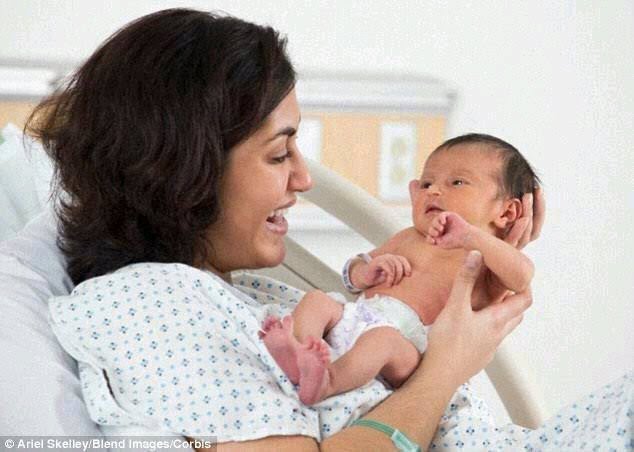While there is no one-size-fits-all answer to the question of the best age for women to give birth, there are certain factors to consider when contemplating this significant life choice.
According to Healthline, experts reports that the best age or time to get pregnant is between your late twenties and early thirties, according to experts.
The optimum results for you and your child will occur between these ages.
Biologically, women are generally most fertile in their 20s. During this period, women tend to have regular menstrual cycles, a higher number of healthy eggs, and fewer reproductive health issues.
The chances of conceiving quickly and having a healthy pregnancy are generally higher during this time.
Additionally, women in their 20s tend to have more energy and are better equipped to handle the demands of motherhood.
On the other hand, many women today are choosing to delay starting a family for various reasons.
Pursuing higher education, establishing a career, and achieving financial stability are common motivations for delaying childbirth.
Waiting until their 30s or even early 40s allows women to focus on personal and professional goals before embracing the responsibilities of motherhood.
However, it’s important to acknowledge that there are potential challenges associated with getting pregnant and carrying a baby to term as women age.
Fertility declines as a woman gets older, and the risk of miscarriage, genetic abnormalities, and other pregnancy complications increases.
Women in their 30s and beyond may also find it more difficult to conceive naturally and may require medical interventions such as fertility treatments.
Advancements in reproductive technology, such as in vitro fertilization (IVF) and egg freezing, have provided women with more options when it comes to family planning.
These options can help mitigate some of the challenges associated with age-related fertility decline.
By freezing their eggs at a younger age, women can preserve their fertility potential for future use, giving them more flexibility in deciding when to start a family.
Ultimately, the best age to give birth depends on individual circumstances and priorities.
While there are advantages to starting a family at a younger age, such as higher fertility rates and physical resilience, there are also benefits to waiting until later in life, such as emotional maturity and financial stability.
It’s essential for women to have open conversations with their healthcare providers about their reproductive health and family planning goals.
Regular check-ups, discussions about fertility preservation options, and genetic counseling can provide valuable information and guidance in making informed decisions.
There is no definitive best age for women to give birth to babies. The optimal age varies depending on a woman’s personal circumstances, health, and priorities.
It’s important for women to be aware of the biological factors that can impact fertility and pregnancy as they age, but also to recognize that advancements in medical technology can offer viable solutions.
Ultimately, the most crucial aspect is for women to make a decision that aligns with their own desires and goals, ensuring they are emotionally and physically prepared for the rewarding journey of motherhood.


